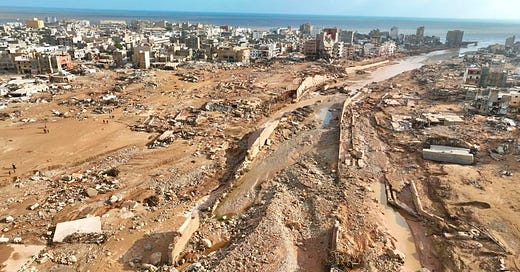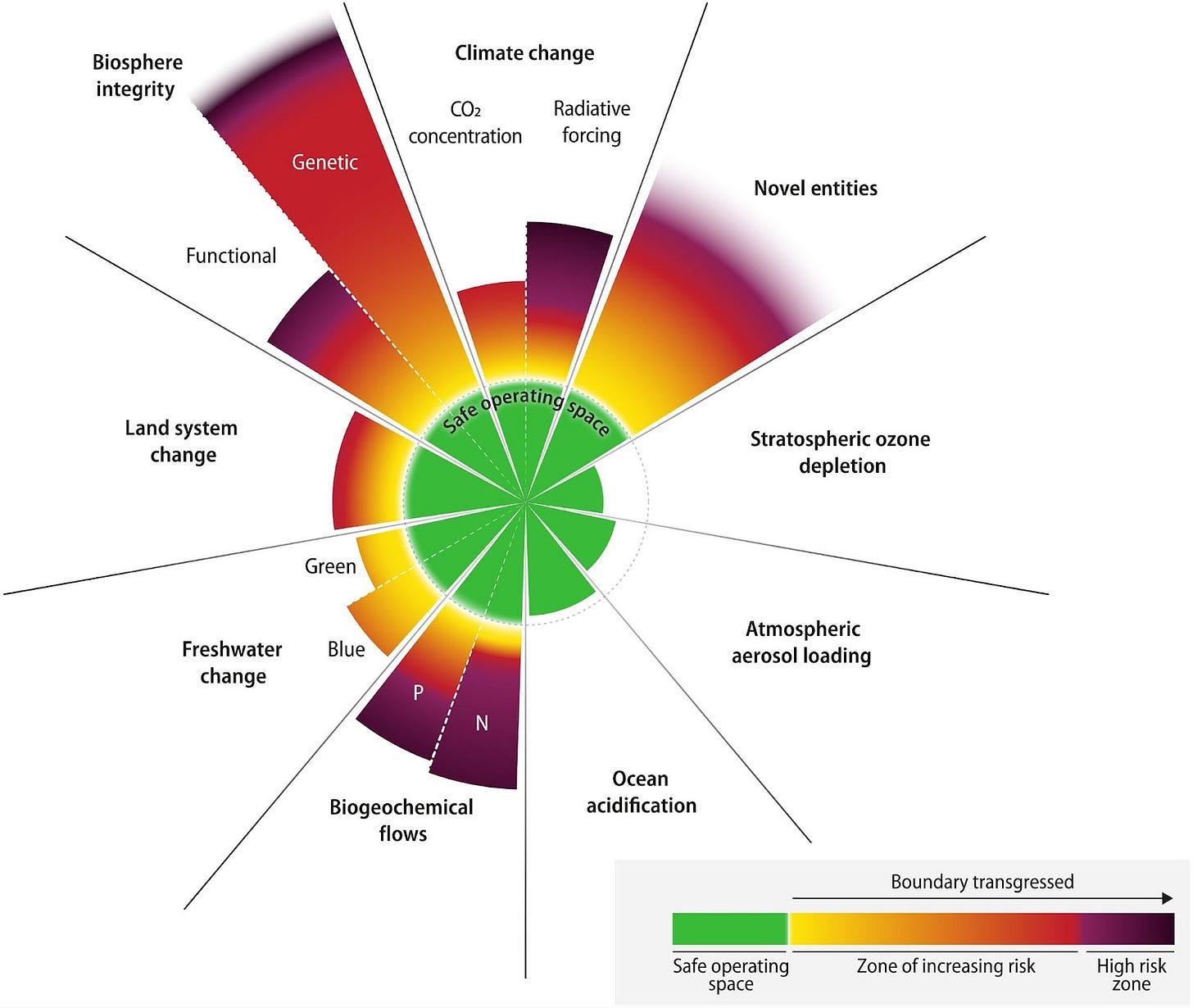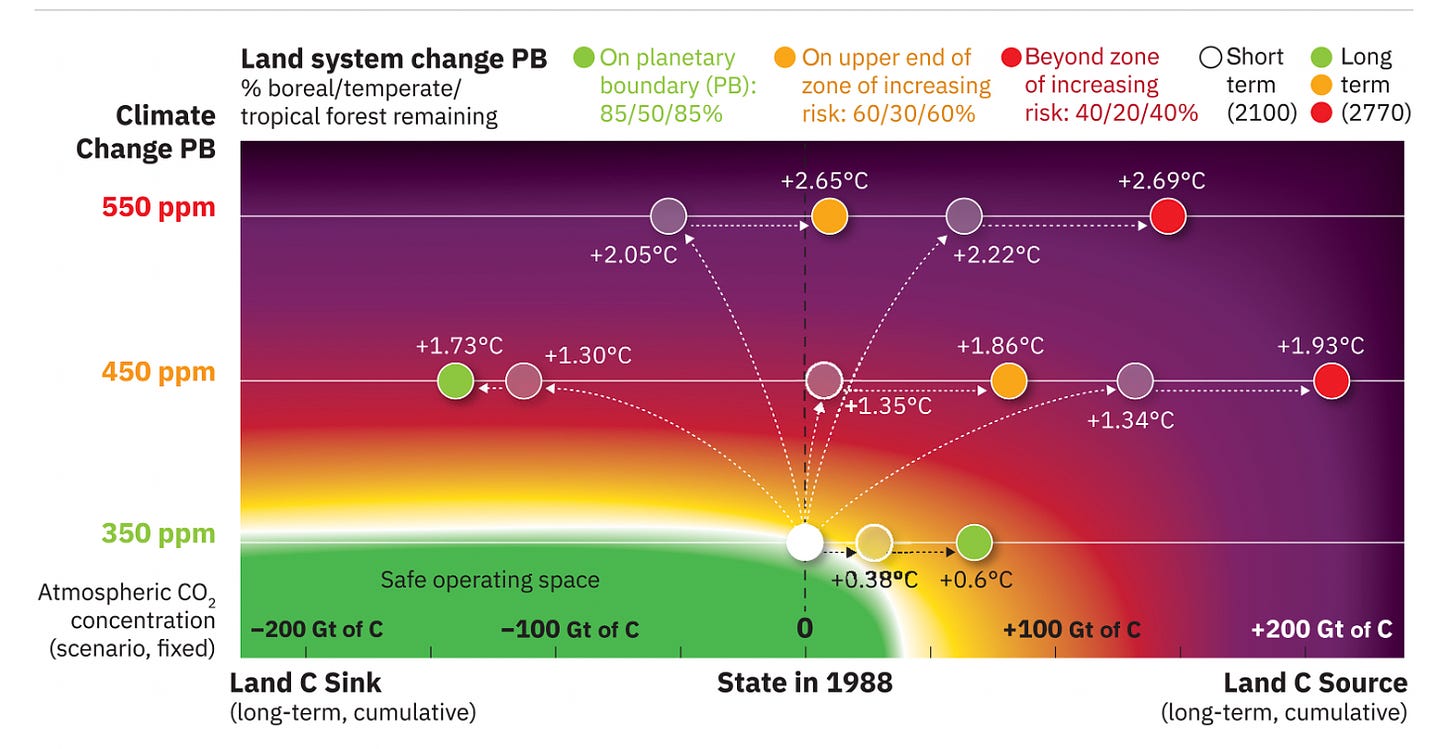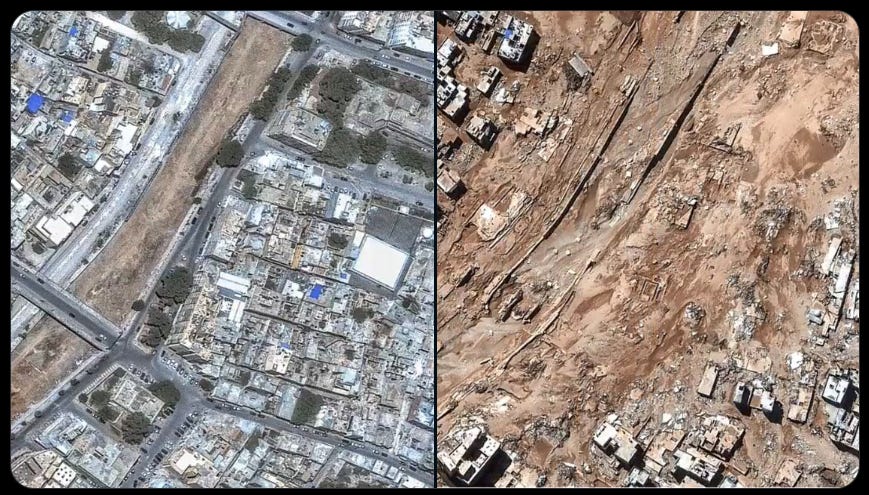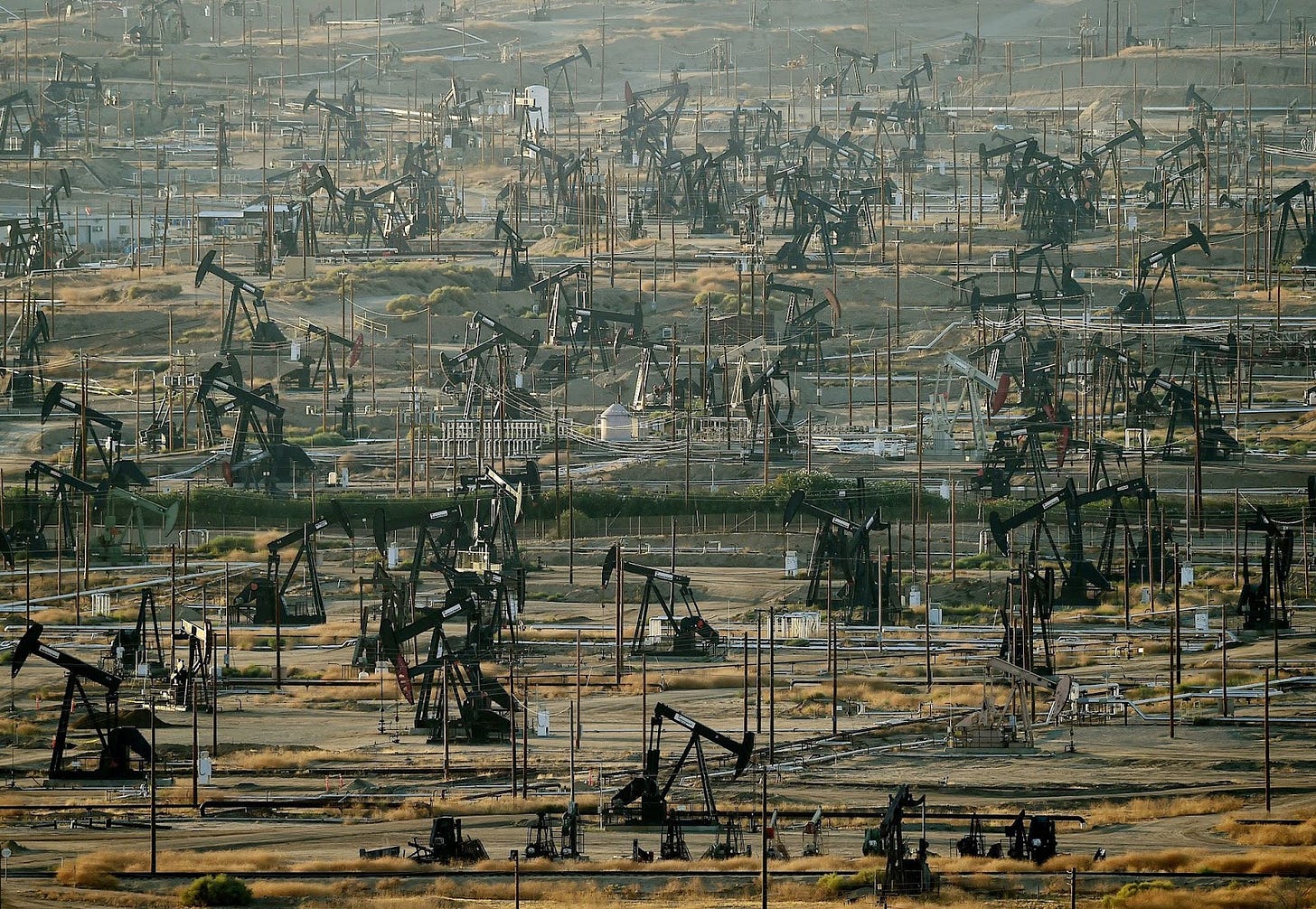Last Week in Collapse: September 10-16, 2023
Cataclysmic flooding in Libya, the Nipah virus in India, and escalating violence in the Sahel…If society keeps falling apart, the only logical result must be Collapse.
Last Week in Collapse: September 10-16, 2023
This is Last Week in Collapse, a weekly newsletter bringing together some of the most important, timely, useful, depressing, ironic, stunning, or otherwise must-see moments in Collapse.
This is the 90th newsletter. You can find the September 3-9 edition here on Reddit if you missed it last week. Thank you for subscribing to the Substack.
Scientists are warning that planetary resistance is dwindling, and earth is moving towards a dramatically more dangerous world. The assessment is bleak.
A vicious flood in Libya broke two dams and killed 11,300+ people. Thousands more are feared dead. More than 250x of the usual September rainfall fell within 24 hours, and hundreds of buildings were swept away in the torrent. Recovery will take a long time, and it’s complicated by a military/political gridlock long-dividing the country in two. Click here to watch a before/after gif.
Flooding in southern China killed 7+ people and triggered over 100 landslides. Heat alerts in Australia—and it’s winter there. Robots are being made to replant new coral.
Crab harvests off the coast of Cambodia are getting much smaller, a result of climate change and overfishing. Almost half the world’s population lives within 200 km of a coast, and 3B+ people rely on fish as a source of food. When the ocean food systems Collapse, they’re going to take down society with them.
A 216-page report on the world’s agriculture paints a grim picture: the percent of the world facing “food insecurity” rose 4% from 2019 to 2022. The planet continues to lose forest cover. One third of food is produced by small-scale farming, subject to volatile weather conditions. Overall the report indicates that most of the world is failing to meet sustainability targets.
Another report, 48 pages long, highlights the science of our predicament. “To get on track to meet the Paris Agreement goals of limiting warming to well below 2 °C and preferably 1.5 °C, global greenhouse gas emissions must be reduced by 30% and 45%, respectively, by 2030.” The report says that global CO2 emissions rose about 1% compared to the same period last year.
Global Witness released a 42-page report on murdered environmental activists. Last year, they confirmed at least 177 people were killed for their efforts to protect the planet; surely many more have gone unrecognized. Illegal mining, timber-harvesting, and small-scale farming in the Amazon constitute most of the cases.
Antarctic sea ice reached new lows, again, and scientists are calling this one facet of climate “breakdown” widely expected to accelerate in the coming decades. You’ve heard of the AMOC, but there’s a Southern Ocean Overturning Circulation, too. The closed system of the oceans is causing the two currents to interact with each other in new ways.
Botanists are warning of a potential bamboo dieoff for a particular species, when it flowers later this decade. Apparently while flowering, and soon after, it basically stops reproducing. This particular species of bamboo flowers roughly once every 120 years.
——————————
I met someone with an officially diagnosed case of Long COVID. She can’t think straight, and her entire diet was upended by the coronavirus. Meta’s Threads app is blocking searches for COVID and Long COVID. The new COVID booster shots are available in parts of the United States. Long COVID will inevitably become more common since society evidently gave up masking altogether. Is it strange that all cultures and nations around the planet couldn’t manage to maintain their discipline—or was it the obvious outcome all along?
Microplastics are flying through the air, and some researchers believe they can reach the stratosphere, where they may damage the ozone layer. Microplastics may also be inside your heart...and your brain. Scientists are experimenting with potential ways to remove microplastics, including a fungal treatment.
The Nipah virus—which currently has no vaccine—has had another outbreak in India, killing two and starting a panic in the state of Kerala. Hundreds of people have been tested, and 4 have so far been confirmed positive. The virus probably originated in bats, and has a CFR of about 75%. It is usually transmitted animal-to-human, but it can move H2H as well. Biohazard tents were set up in Dover, near the UK-France border.
Updated damage report from Morocco, where an earthquake struck on September 8: about 2,500 dead, and an equal number injured. Hundreds of schools and thousands of buildings were affected.
For better or worse, the world’s largest lithium deposit has been discovered in Nevada, promising years more of extraction and industrialization ahead. Malaysia is banning exports of rare earth minerals, and Angola made discoveries of rare earth minerals too.
A European trade group for solar power is warning that Europe’s solar manufacturers may go bankrupt because China’s solar production pushed prices too low for solar companies to compete. Meanwhile, Colombia is facing a natural gas problem because of its reliance on petrol; El Niño is also interfering with its hydropower. And South Africa is burning lots of diesel in a vain attempt to keep the lights on—but blackouts are still everyday occurrences. The International Energy Agency promises that the end of fossil fuels is nigh, and total extraction should peak before the end of this tumultuous decade.
130+ cases of cholera were discovered in the Kurdish Autonomous Region of Iraq. Bed bugs are becoming more common in the UK. At least 700M people are unsure when/if they will eat again.
Lampedusa, a small Italian island near North Africa, saw 7,000+ migrants/refugees in 24 hours—probably a new record…until next month. Germany reconsidered its agreement with Italy to take some of their migrants—but then reconsidered its reconsideration. The once impermeable Darien Gap is seeing record numbers of travelers heading north—where they are apprehended & released onto the streets of the U.S. Meanwhile, the War in Sudan resulted in Sudan having the most internally displaced people in the world today (estimated 7.1M), ahead of Syria (6.6M), the DRC (6.1M), and Ukraine (5.1M).
Nigeria had a total energy blackout on Thursday, although the system bounced back later. One day the power will go out and never turn back on… The water is going out in Mayotte, where 48-hour off-periods alternate between 24-hour periods where residents can access water.
A global oil shortage is forcing prices higher later this year. Although the Middle East is ramping up renewable energy, it is far behind in the quest to become “sustainable.” Türkiye is planning to build a nuclear power plant near Greece, Rwanda is getting one, and even a small airbase in Alaska will build a tiny reactor.
Quebec’s homeless population doubled over the last 4 years.
Keep reading with a 7-day free trial
Subscribe to Last Week in Collapse to keep reading this post and get 7 days of free access to the full post archives.

